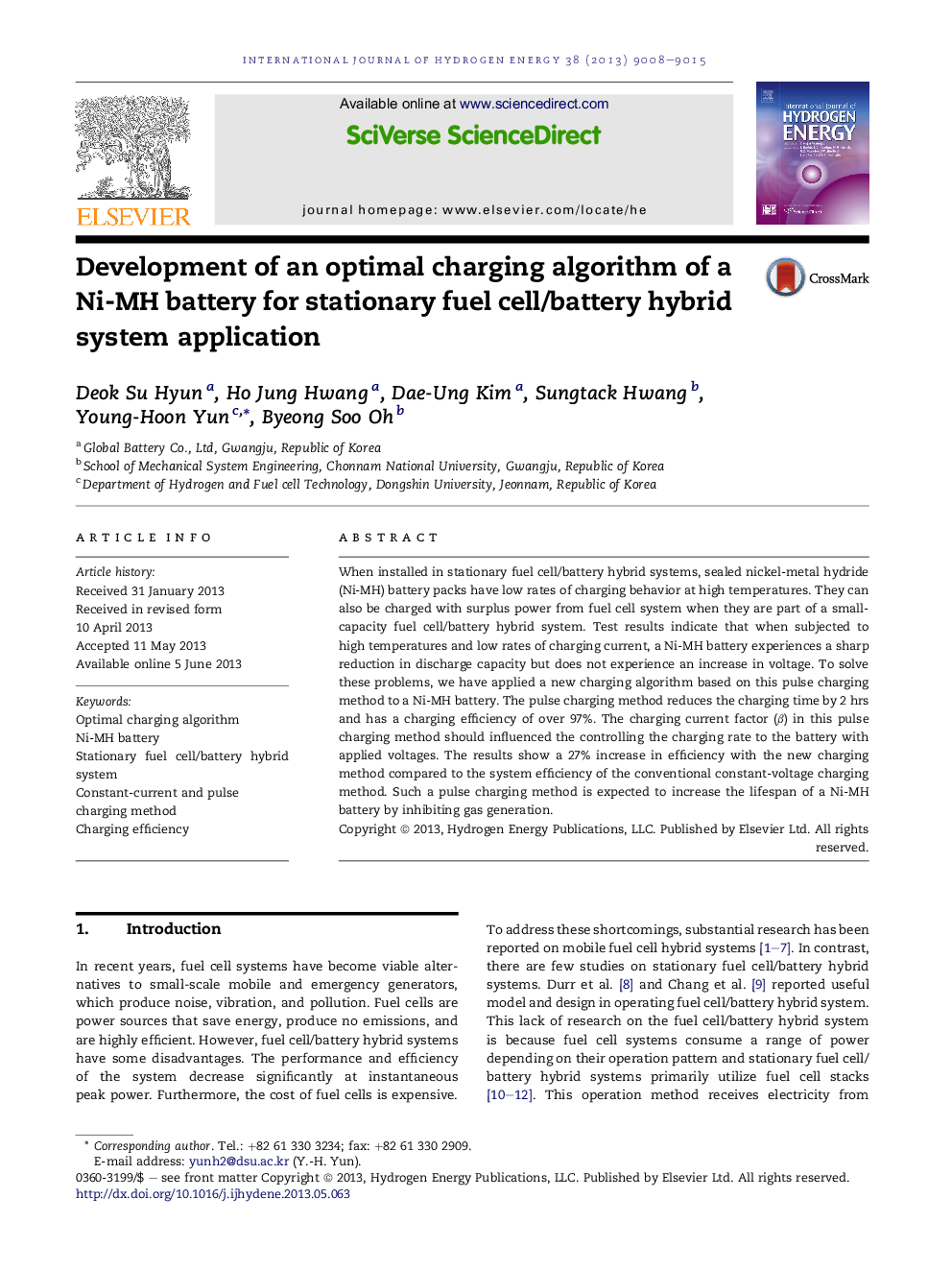| Article ID | Journal | Published Year | Pages | File Type |
|---|---|---|---|---|
| 7722848 | International Journal of Hydrogen Energy | 2013 | 8 Pages |
Abstract
When installed in stationary fuel cell/battery hybrid systems, sealed nickel-metal hydride (Ni-MH) battery packs have low rates of charging behavior at high temperatures. They can also be charged with surplus power from fuel cell system when they are part of a small-capacity fuel cell/battery hybrid system. Test results indicate that when subjected to high temperatures and low rates of charging current, a Ni-MH battery experiences a sharp reduction in discharge capacity but does not experience an increase in voltage. To solve these problems, we have applied a new charging algorithm based on this pulse charging method to a Ni-MH battery. The pulse charging method reduces the charging time by 2 hrs and has a charging efficiency of over 97%. The charging current factor (β) in this pulse charging method should influenced the controlling the charging rate to the battery with applied voltages. The results show a 27% increase in efficiency with the new charging method compared to the system efficiency of the conventional constant-voltage charging method. Such a pulse charging method is expected to increase the lifespan of a Ni-MH battery by inhibiting gas generation.
Keywords
Related Topics
Physical Sciences and Engineering
Chemistry
Electrochemistry
Authors
Deok Su Hyun, Ho Jung Hwang, Dae-Ung Kim, Sungtack Hwang, Young-Hoon Yun, Byeong Soo Oh,
